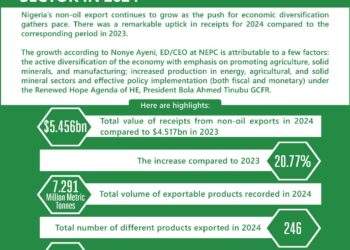By Rtn. Victor Ojelabi
The era of traditional advertising is fading as Artificial Intelligence (AI) reshapes the media and advertising industry.
While many see AI as a groundbreaking tool, others worry about the automation of jobs once handled by humans.

Advertising, one of the oldest industries, has seen significant evolution.
In Nigeria, it began with the introduction of newspapers, where traders placed adverts through the first advertising agency, West African Publicity Limited, a subsidiary of the United African Company (UAC), established in 1928.
Over time, modernisation brought fierce competition among agencies vying for brands’ juicy advertising budgets.
A report by PricewaterhouseCoopers highlights Nigeria’s advertising spend reaching N605.2 billion in 2023, a compound annual growth rate of 18.7% since 2018, when it stood at N216 billion.
However, this upward trend faces challenges as AI threatens to disrupt the traditional advertising model, forcing agencies to evolve creatively or risk irrelevance.
Coca-Cola’s latest campaign is a proof to this transformation.
The global beverage giant stunned the world by incorporating Generative AI (GenAI) to recreate its iconic 1995 “Holidays Are Coming” advert.
The original ad, featuring Christmas-lit trucks spreading holiday joy, became a timeless classic, cementing Coca-Cola’s association with Christmas traditions.
Instead of a conventional remake, Coca-Cola employed Generative AI to reimagine the nostalgic ad.
GenAI, a type of artificial intelligence that creates content such as text, images, audio, and synthetic data, enabled the brand to produce a modern version of the ad.
The new campaign begins like the original but evolves into a visually captivating experience, with AI adding a snowy town, polar bears, and festive animals. Even the characters were AI-generated, modelled after real actors with their consent.
This fully AI-created advert, which will be airing nationwide on TV, marks a significant shift, proving AI’s growing role in reshaping traditional advertising.
The benefits are clear: AI enables faster production of high-quality ads, reduces costs, and opens doors to bold, innovative ideas.
As AI advances, advertising could become even more personalised, with ads tailored to individual viewers and smaller brands competing effectively with larger players.
The campaign also signals a broader industry change.
The reliance on lavish offices and extravagant expenses to impress clients is waning. Instead, a home office, high-speed internet, AI tools, and creativity could redefine the industry by 2025.
This paradigm shift calls for action from regulators such as the Advertising Regulatory Council of Nigeria (ARCON) and the Heads of the Advertising Sectoral Group (HASG). These organisations must address the challenges posed by AI to ensure their survival.
Coca-Cola’s campaign is more than just a holiday advert; it’s a glimpse into the future of advertising.
The pressing question is no longer whether AI will transform advertising but how quickly the industry can adapt.








